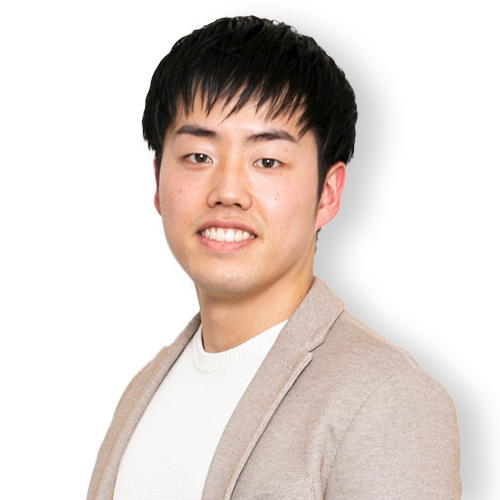As a self-taught programmer, it was my dream to become a developer
I'm currently a console game programmer, but I originally studied business management. I always loved RPGs and I was always interested in developing my own game so when I was in college, I programmed a mobile game app for a club I was part of.
My major in university was business management at the time. Game development seemed highly competitive so I thought it would be difficult to pursue a career there.
I figured I could get involved with the game industry through marketing down the line. but as I continued to develop my own games, I began to realize just how much I wanted to be a programmer. I researched the industry extensively, including the IT sector.
It was during an off-campus study session that I first heard of SEGA's welcoming and friendly work environment. Getting the chance to speak to SEGA employees directly only fueled my desire to challenge myself to become a developer, so I decided to apply.
During my interview, I demonstrated the mobile game that I developed for my club and told them I had been analyzing data in an informatics research lab. The prospect of being able to develop a console game was a compelling factor in my decision to join SEGA. I knew I wouldn't be solely limited to console games, and I'd have opportunities to challenge myself in other fields of game development as well.
SEGA offers extensive training and a well-balanced work environment
As a programmer, I'm involved with developing minigames for a new Ryu Ga Gotoku Studio project that is currently in development. The programming language we use is C++. I didn't know how to write in C++, so I took a one-year in-house training programming and learned it. During the program, I gained a better understanding of the development process and programming methodology, and managed to hone my coding skills.

Projects are developed over a one-to-two-year span, and we hold reviews every couple of months. We each have our own set of responsibilities and the freedom to choose how we approach them, which makes my work incredibly rewarding. It's also reassuring to know I have the support of my senior colleagues. It allows me to focus on the programming, which I find the most exciting.
Typically, I work with around 20 senior programmers. It's a well-balanced team atmosphere. There are times when we're laser-focused and others where we'll banter and crack jokes. Despite the minigames having some grim storylines, they're chock full of goofy puns intended to make you laugh. It's quite funny how often we find ourselves engrossed in serious discussions over the delivery of a joke or pun.
Gaining the experience and knowledge to lead a team
What I love about SEGA is the comfortable work environment. Although many assume that the place would comprise mostly of men, there's been a significant rise in the number of women joining us recently. Gender diversity is valued here, and communication flows seamlessly. SEGA's new flextime system makes it very easy for us to take time off. I am also immensely grateful to be able to study development through the company's extensive range of training programs.

Even though I had questions about the basics, the lecturers were kind enough to answer any queries I had and never made me feel inadequate about my technical skills.
My goal is to become like the senior employees who have supported me along the way. I aspire to become a person with a vast reservoir of knowledge and experience, capable of answering any question thrown my way, and be that person people direct you to when you've got a question. But first, I need to work on developing my leadership skills.
I feel blessed to be able to be a part of the Development Team that I've always dreamt of joining. During my job interview and meeting with HR, when I was asked what I was interested in, I responded with, "Like a Dragon!" I'm sure they did what they could to arrange that for me.
I believe SEGA is a company that will hear you out if you express your desires. If you feel something holds promise, you're allowed to write the code and pitch your idea. Even though I had no prior experience in developing console games, they recognized my enthusiasm. If you're job hunting right now, don't be afraid of applying for the job of your dreams and just go for it!
*This interview was conducted during the second year of employment.
10:30 AM I arrive at the office. Then, I attend a morning meeting where we share updates before checking my emails and tasks.
11:00 AM Programmers' project meeting where we're informed about decisions and check each team's progress.
12:30 PM Break for lunch with the team.
1:30 PM Minigame progress meeting where we confirm specifications and work on any new tasks.
2:00 PM Focus on coding.
5:00 PM Consultation meeting regarding the implementation, where I discuss anything I'm unsure of.
8:00 PM I check my to-do list for the following day before finishing for the day. (I'm also developing a game for fun with some junior colleagues that I'll work on afterwards.)

STAFF INTERVIEWS
















